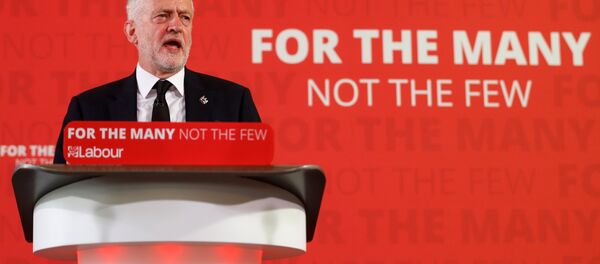In a briefing note, the IFS stated the Conservatives had very few tax or spending commitments in their manifesto, although the plans implied at least another five years of austerity, with the continuation of planned welfare cuts and serious pressure on public services. However, their stated aim of balancing the budget by the mid-2020s would require greater spending cuts or tax rises beyond the end of the next parliament.
Working age welfare benefits will be slashed, to save £11 billion (US$14 billion) annually — although the move would reduce the incomes of the lowest income working age households significantly.
IFS manifesto analysis: Large fraction of Labour's tax-raising package would come from corporate taxes, #GE2017 pic.twitter.com/Djx6YrQmuV
— IFS (@TheIFS) May 26, 2017
Commitments to means-test winter fuel allowance payments represent a very modest reduction, with a severely harmful impact — winter fuel payments represent just two percent of social security spending on pensioners, but can be a matter of life and death.
Distributional impact of personal tax and benefit changes to come: the parties compared, #GE2017 pic.twitter.com/1hGdSlYlG4
— IFS (@TheIFS) May 26, 2017
Vows to reduce immigration to "tens of thousands" would hit both the economy and public finances, reducing tax revenues by as much as £6 billion (US$7.7 billion) annually. The party's plans for the NHS may well be entirely unworkable — a real increase of £8 billion (US$10.25 billion) over the next five years would extend the lowest period of spending increases in NHS history to 12 years (1.4 percent average annual growth between 2010-11 and 2022-23, with just 1.2 percent a year from 2016-17 onwards).
Deficit falls further under Conservatives than Labour, but still some way off being eliminated #ge2017 Read more: https://t.co/Ak7vnykAem pic.twitter.com/Ik13ZJ2sBo
— IFS (@TheIFS) May 26, 2017
However, Labour's manifesto does not escape unscathed from the IFS' analysis.
Spending would be increased to its highest sustained level in over 30 years, although the IFS acknowledges the state under Labour would be no bigger than many advanced economies, and the headline tax rate under Labour would still be the lowest in the G7.
Moreover, raising taxes at the upper echelons of society could have a "trickle down" effect, with businesses increasing the price of goods and similar. Other pledges have the potential to backfire — the party's headline commitment to abolish tuition fees would cost well over £9 billion (US$11.5 billion) annually, and benefit high earning graduates the most.
Labour cost scrapping tuition fees at £9.4bn but income from fees set to be £13.5bn in 21/22 — either cost is higher or funding cut by 30% pic.twitter.com/gGYseMea21
— IFS (@TheIFS) May 26, 2017
While Labour plans for public pay would increase the bill by over £9 billion (US$11.5 billion) annually, Conservative pledges to cap public sector pay would be hard to deliver, dragging remuneration in the field to its lowest level relative to private sector pay in decades, deleteriously impacting recruitment, retention and motivation.
Now concluding the presentation on tax and benefit policies in the manifestos, #GE2017 pic.twitter.com/otSrorlD13
— IFS (@TheIFS) May 26, 2017
While the IFS praises Labour's promised £250 billion (US$320.2 billion) of additional infrastructure spending over ten years, on the basis it would support the economy, the authors note the party's manifesto does not commit to cancelling many of the Conservatives' planned cuts. If the party were to stick to these proposals in government, budget reductions in coming years would still severely impact the poor — and reversing this would necessitate finding several billion pounds unmentioned in the manifesto.
Videos of today's IFS manifesto briefing are now being posted on our election #GE2017 website: https://t.co/Ak7vnykAem pic.twitter.com/99K9L2dkzC
— IFS (@TheIFS) May 26, 2017
Paul Johnson, IFS Director, said the two parties have rarely offered the British such a clear and substantial choice — although neither is being totally honest with voters.
"It is likely the Conservatives would either have to resort to tax or borrowing increases to bail out public services under increasing pressure. Labour's commitment to a much bigger public sector would require higher taxes that affect many of us. A bigger state than the one we have been used to is perfectly feasible as many countries have demonstrated, but Labour should not pretend such a step-change could be funded entirely by a small minority at the very top. In particular the large increase in company taxation that they propose would undoubtedly affect a far broader group than that," he said.





